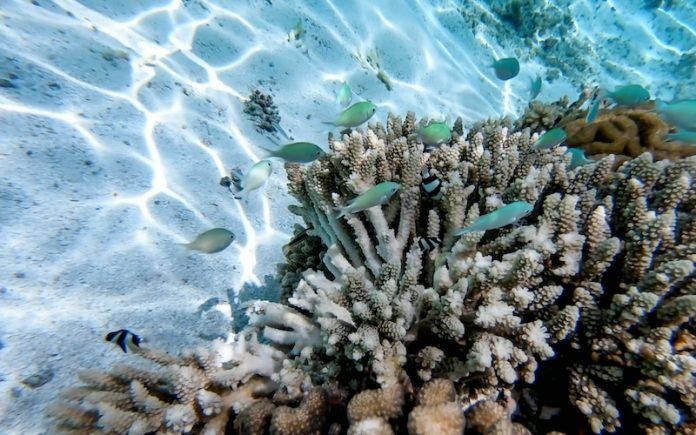
In the vast and vibrant underwater world of our oceans, coral reefs stand as bustling metropolises of marine life.
Often hailed as the rainforests of the sea, these ecosystems are crucial, supporting a quarter of all marine species despite occupying less than one percent of the ocean floor.
Yet, the once-common sight of coral expanses as large as basketball arenas is becoming increasingly rare due to human activities and diseases linked to ocean sediments, leading to a significant decline in global coral populations.
Mark Hay, a distinguished professor at the Georgia Institute of Technology, likens the situation to a hypothetical scenario where all the pine trees in Georgia vanish within a few decades, illustrating the profound impact on biodiversity and ecosystem health.
Amidst this backdrop, groundbreaking research by Hay and Cody Clements, a research scientist, has identified a previously overlooked yet critical player in maintaining coral health: the humble sea cucumber.
These simple, sediment-eating creatures, likened to autonomous vacuum cleaners of the ocean floor, play a pivotal role in preserving coral ecosystems.
However, due to decades of overharvesting for food and their slow reproductive rates at low densities, sea cucumbers have become rare, leaving a gap in our understanding of their ecological importance until now.
The revelation came to Hay after seeing a 19th-century etching in a Fiji museum, depicting a ship loaded with tons of dried sea cucumbers.
This historical snapshot hinted at a once-abundant presence of these organisms in shallow tropical oceans, a stark contrast to their scarcity today.
The importance of sea cucumbers began to unravel further when Clements, while working on coral restoration in Mo’orea, French Polynesia, noticed a significant decline in coral health after removing sea cucumbers from the vicinity of newly planted corals.
To investigate this phenomenon, Hay and Clements set up experiments comparing coral health in areas with and without sea cucumbers.
Their findings were stark: corals devoid of sea cucumber companions were 15 times more likely to succumb to disease, characterized by a white band creeping up the coral and eventually leading to its death.
This pattern was observed across different coral and sea cucumber species, suggesting a robust and universal interaction.
This groundbreaking research highlights the critical role of sea cucumbers in mitigating coral disease, acting as essential custodians of the ocean floor.
Their absence, a result of human exploitation and environmental neglect, has inadvertently set off an ecological time bomb, contributing to the degradation of coral reefs worldwide.
Hay and Clements advocate for the conservation and repopulation of sea cucumber species, particularly those of negligible commercial value, as a means to restore coral health and resilience.
This strategy not only aims to combat coral disease but also seeks to enhance biodiversity and support coastal communities dependent on healthy reef ecosystems.
As humanity grapples with the consequences of its actions on the natural world, the story of the sea cucumber serves as a poignant reminder of the interconnectedness of life and the urgent need for sustainable practices.
By acknowledging and acting on the critical role of these unassuming janitors of the sea, there is hope for the restoration and preservation of our planet’s underwater rainforests.
The research findings can be found in Nature Communications.
Copyright © 2024 Knowridge Science Report. All rights reserved.



